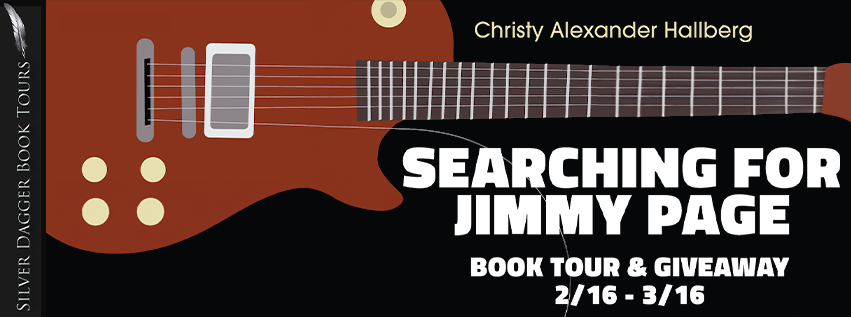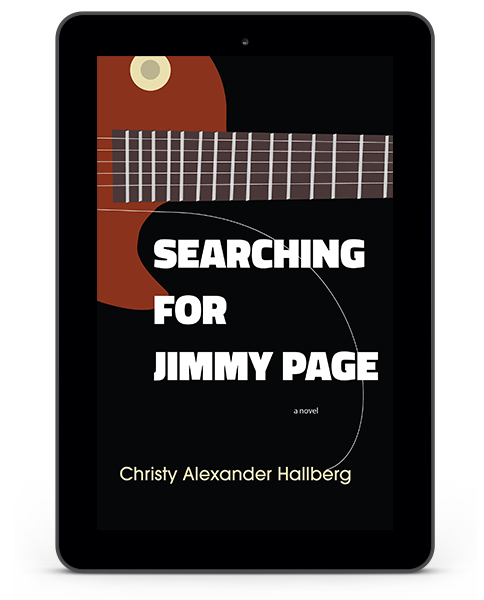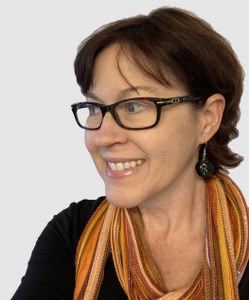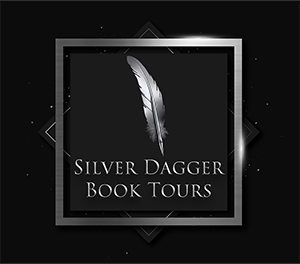CHAPTER ONE
The night my great-grandfather died, frigid air howled through the pines and swirled down the chimney of his shack near our fallow tobacco fields in eastern North Carolina. My grandmother and I kept vigil at his bedside, a battery-operated space heater oscillating at our feet, kerosene lamps lofting shadows on the walls. He’d refused to install electricity and insisted the fireplace remain unlit at night. He claimed spirits talked to him through the flue at the Witching Hour. So did birds, especially owls. He said they were good omens, unless they flew inside your house. Owl in the house means death’s coming, he’d say.
I lolled my head against the wall, bare like all the others, no family portraits or prosaic artwork or thumbtacked greeting cards with snapshots of my great-grandfather’s progeny tucked inside. The shack was cluttered with clothes and other debris from a fading life, but the walls were naked. He preferred it that way, no memories or illusions, except the ones that came to him at night.
At the stroke of twelve he wrapped his knotty fingers around my wrist and squeezed. “Can you hear it?” he asked, his voice like winter wind crackling through kindling. An icy shiver ran through me. He had not spoken since that balmy summer night when I was nine years old, when the river
ran dry and the pines began to cry. The night my mother committed suicide—an abomination, he’d called it. A sin against Providence. He’d sat expressionless in his rocking chair while Grandma delivered the news, his face bathed in candlelight, then hobbled into the woods and chanted my mother’s name, like an incantation, a prayer for deliverance. Then he’d spoken no more.
I inched closer to him, close enough to smell the implacable stench of the dying. “Hear what?” I asked timorously.
“Owls,” he said. “Like music.”
My body fluttered as if I were falling out of oblivion, slowly, unwittingly, the air prickly and thin. Long ago, I’d heard a song about owls crying in the night, the singer’s wail primeval, in sync with marauding guitar licks, the beat like jungle drums. I felt them vibrating inside me just then, like a distant echo from another life, one that still included my mother.
“Can you hear the music?” he persisted, struggling to raise his head.
Grandma implored me with her eyes. “I can hear it, Granddaddy.”
He gave a shuddering laugh. “Ain’t in your head, girl.” “Where then?”
I waited, watching his chest rise and fall, his fitful breaths grow shallow—the caesura between life and death.
“It’s in your soul,” he finally said. He nudged his Bible beside him, giving voice to verse: “Ecclesiastes 6:10: That which hath been is named already.”
He dropped my arm and exhaled, his face pallid and drawn. Grandma and I stood over him, bearing witness, sleet pelting the windows, that song about the owls, its searing
guitar, haunting me, like fragments of memory I’d buried with my childhood—grainy images of my mother in her yellow bedroom with her lavender incense and votive candles, her black and white photograph of a Rock star standing on a stage at Kezar Stadium in 1973, dressed all in white, lips pursed, unruly dark hair framing a beatific face, guitar strapped over his shoulder, arms spread wide, as if he were awaiting crucifixion. The two of them were intertwined in my mind’s eye, like ashes wafting in a summer wind, waiting for water to receive them. I was born of water and moonlight, and of her and of him.
Grandma stopped the clock on the mantle to mark the moment of my great-grandfather’s passing, as if halting time held power—then forever now.
She handed me a flashlight then draped her overcoat around me, the scent of Jergens lotion and talcum powder lingering in the fabric. “Go on home, honey,” she said. “I shouldn’t have brought you here.”
“You didn’t,” I said faintly.
I’d followed her from our farmhouse at dusk, trudged the quarter-mile past the barn and hog pen, through the woods, where the footpath ended, as if I’d heard my great- grandfather’s keening call.
“Go home,” Grandma said, prodding me toward the door. “I’ll be along directly.”
I wrenched away from her and stared at my great- grandfather, the withered shell that remained, searching for some part of him that still looked vital—the outline of his body beneath the quilt, legs splayed as if the cat he used to own were nestled between them, his arm dangling over the
side of the bed. Grandma tucked it underneath the quilt her mother had made, tattered and yellowed with age, the same quilt that had covered her while she lay dying over half a century before, cancer ravaging her breast, flies swarming the window screens, attracted by the fetor of rotting flesh, all because her husband had believed he could heal her with ritual and prayer. I harbor a picture of that night in my mind’s eye—my great-grandmother’s bewildered stare, her mouth a perfect O—a last word half-spoken, an oracle undelivered. Now he was dead, his jaw unhinged, spittle on his grizzled chin, his only child by his side—the daughter whom he only recognized after she’d tell him her name, the name he’d given her seventy years ago.
“Do like I say,” Grandma said sternly.
I stood there breathless, my great-grandfather’s milky eyes—fixed and dilated, seeing nothing, seeing everything— boring into mine.
Grandma cupped my chin in her hand. “Don’t look back,” she said with urgency in her voice.
I never had before. Not after my mother died. Like my great-grandfather, I had not spoken her name since. I had not heard her voice in a brooding summer rain or felt her hand clasping mine in a sibylline dream or seen her face in the shadow of a stealthy Hunter’s Moon. I had erased her and the sainted sinner who conjured music and magic from an electric guitar, his photograph in my mother’s bedroom, her unfaithful talisman. I’d never looked back. Never. Until that winter’s night in February 1988, when I was eighteen years old, the past summoned like fire in my great-grandfather’s shack, phantom owls crying in the night.
It was inevitable. Perhaps it was even Providence.
Now would return me to then. The tale demanded to be told.
CHAPTER SIX
The first time I saw Jimmy Page in living, pulsing color, I was six years old. Claudia had taken me to the drive-in to see Led Zeppelin’s concert movie, The Song Remains the Same, filmed largely at Madison Square Garden in 1973, when Jimmy was twenty-nine. In an opening scene, before the concert begins, a man with dark hair and jeans sits on a blanket in an English garden playing a hurdy-gurdy, swans floating in the lake nearby. The camera approaches him from behind. Closer. Closer. The music stops. Closer. He pivots around and stares into the camera, his eyes a bubbling, glowing red.
I hid my face in my hands.
Claudia nestled her head on my shoulder. “It’s just a fantasy, Luna. It’s not real.”
I peeked at the screen through my fingers. “Who is he?” “The man in the black and white picture in my room. That’s
Jimmy.”
“Uh uh,” I said ardently. “It’s the devil.”
She clucked her tongue. “There’s no such thing as the devil.”
I watched Jimmy emerge from a plane with the other three band members, climb into a waiting limo, speed along a highway into New York City, then burst onto the stage like a dark angel with a six-string.
Claudia bolted from the car and began to twirl in the mottled light from the projector, her tie-dye skirt flapping in the breeze. She reminded me of a radiant Julie Andrews spinning on a verdant hillside in the Alps, alive with the sound of music.
“Look, Luna,” she called. “He’s beautiful.”
He was beautiful, ethereal, with wavy dark hair that grazed his shoulders and a Pre-Raphaelite face, like the ones I’d seen in Claudia’s art history books. He tore through “Rock and Roll” with a febrile zeal that countered his delicate features. The ambiguity frightened me.
Claudia thrust her arms out, as if she were about to take flight. I closed my eyes, picturing her twirling in a ray of light, her yellow hair—blazing yellow—flowing down her back. She was flying, like those doves at the beginning of the film.
“Look, Luna.” She opened my door and led me to the front of the car. Someone blew a horn. Someone else threw a cup of beer at us. Lascivious snickers. Catcalls and sneers. The air taut with sordidness.
“Claudia, we’re in trouble!” I cried.
She clasped my hand and twirled me around, like those corny dancers with plasticine smiles and shellacked hair on the Lawrence Welk Show, Grandma’s favorite Saturday night program.
Get back in your car, freak!
“We’re in trouble, Claudia!”
I jerked away from her and urged her back inside the car. She watched Jimmy through the dusty windshield, transfixed. I watched with her, a box of half-eaten popcorn on my lap. He was a wizard, manipulating invisible energy around the
Theremin in “No Quarter,” beguiling a doubleneck guitar in “The Rain Song,” black shirt open in the front, stars and half- moons on black pants, cryptic silver pendant dangling from his neck.
I gazed at him, unsettled, my insides churning.
The scene shifted from Jimmy to Robert Plant, galloping on a steed toward a dreary castle with an eagle perched on his arm like a shield. The band had interspersed fantasy sequences throughout the film. In Robert’s, he’s a gallant knight who rescues a beautiful princess in a turret.
“Did you know that guy—like you knew Jimmy?” I asked cautiously, unsure if I wanted to hear the answer.
She smiled, her lean profile spectral in the flickering light. “How do you know I don’t still know him?” A chill ran through me. “There are lots of ways to know someone, Luna. You can be face to face with a person and not know them at all. Or you can hear their voice in your head and know their soul.”
The eerie bass line of “Dazed and Confused” began to thrum.
“I wanna go home,” I said.
She eased back in the seat. “Not yet.”
Halfway through “Dazed and Confused,” a roadie hands Jimmy a violin bow from the shadowy wings of the stage. He stands alone under a spotlight and strokes the bow across the strings of his Les Paul. Slow, sensual, like a seduction. The scene shifts from Madison Square Garden to a blustery moonlit night in the Scottish Highlands. An ascot-clad Jimmy climbs a mountain. An old man, the mythical Hermit, like the one from Claudia’s Tarot cards, stands alone at the crest, ominous music droning in the background. Jimmy reaches for
the old man, who morphs into Jimmy himself, clad in a hooded gray robe, lantern in one hand, violin bow in the other. He sweeps it overhead like a saber while the scene fades back to Madison Square Garden—Jimmy in a halo of white light, back arched, bow commanding guitar strings. Intense, fast. Robert Plant’s voice, a plaintive wail, in sync with the music. At the climax, Jimmy tosses the shredded bow into the audience like a discarded lover then launches into a blistering guitar solo.
“You see,” Claudia said. “He’s not the devil. He’s just searching for the light.”
“What light?”
“Knowledge. Truth. The things we’re all searching for.”
Her eyes were glassy. She was fading away. By the time we got home she’d be gone, locked in her room with Jimmy’s black and white picture above her bed, “Four Sticks” blasting on her stereo. I would sit by the door and wail, Claudia, let me in. Tell me the story of my name. I’m the moon and you’re a goddess. Tell me. Tell me.
“Why’d he turn into that old guy?” I asked frantically.
She gripped the steering wheel. “Because he found the light.”













This looks like a fantastic novel. Thanks for hosting this tour.
ReplyDeleteThanks, Michael!
DeleteI would enjoy reading this one. I like the trailers, especially hearing from Alice Cooper.
ReplyDeleteThanks, Marcy! Yes, the Alice Cooper promo was thrilling for me.
Delete